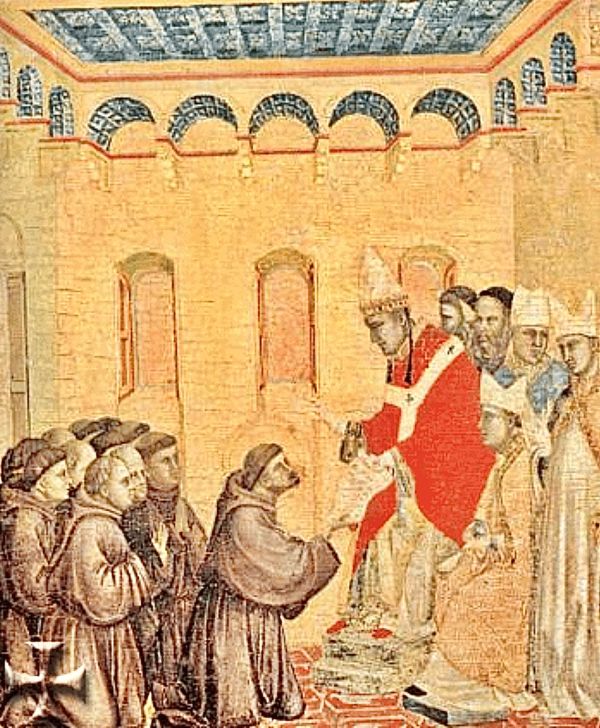In the Gospel of today's liturgy, Jesus reveals himself as the Bread of Life: salvation that every man seeks.
He affirms that he came down from heaven to do the will of the One who sent him, not his own.
Francis always distinguished himself by that continuous search for God's will in all things.
In the Sources we find from the Poverello an appreciation of the Father's will for Jesus:
"And the will of his Father was this, that his blessed and glorious son, whom he gave to us and was born for us, should offer himself, through his own blood, as a sacrifice and victim on the altar of the cross, not for himself, since through him all things were created, but in atonement for our sins, leaving us the example so that we might follow in his footsteps. And he wants us all to be saved through him and to receive him with a pure heart and a chaste body" (Letter to the Faithful. FF 184).
And in the Paraphrase of the "Our Father" he adds:
"Thy will be done, on earth as it is in heaven: That we may love you with all our heart, always thinking of you; with all our soul, always desiring you; with all our mind, directing all our intentions to you and in all things seeking your honour; and with all our strength, expending all our energies and sensibilities of soul and body in the service of your love and not for anything else; and that we may love our neighbour as ourselves, drawing all with all our power to your love, enjoying the goods of others as of our own and in evils suffering together with them and giving no offence to anyone."
(FF 270).
In prayer he always asked God for knowledge of his will:
"Francis, the servant of Christ, not trusting in his own experience or that of his own, entrusted himself to prayer, to seek insistently what was [...] the disposition of the divine will.
He was thus enlightened with an answer from heaven and understood that he had been sent by the Lord for this purpose: to win souls to Christ, whom the devil was trying to kidnap.
And so he chose to live for all, rather than for himself alone, spurred on by the example of the One who deigned to die, He alone, for all men" (FF 1066).
From a young age Clare of Assisi always sought the will of the Father and, in the monastery, in her Rule, she wrote:
"Let the sisters [...] remember that they have renounced their own will for the love of God" (FF 2807).
Following the example of Christ who came to fulfil the Father's plan, Francis and Clare were also tireless seekers of the divine plan for them.
«For I came down from heaven not to do my own will but the will of him who sent me» (Jn 6:38)
Wednesday 3rd wk. in Easter (Jn 6:35-40)












